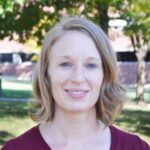Volume 36 Number 5 | October 2022
Elizabeth A. Gockel-Blessing, PhD, MLS(ASCP)CM
Amanda Reed, MAE, MLS(ASCP)CM

This is the first in a series of articles addressing 10 questions to consider before you take the “plunge” to start an online medical laboratory science (MLS) education program. The considerations we share here are applicable to building any online program. In hindsight, we wish we had the answers before we “jumped in.” Here we introduce you to each of the 10 questions that we will discuss in detail in subsequent articles in this series.
IT Infrastructure: Do We Have Enough Bandwidth?
This article examines key areas of information technology (IT) infrastructure that were considered in the infancy stages of building an MLS online program. One of the first questions we asked was if our course management system (CMS) could accommodate such a program. Subsequently, the question of IT bandwidth as it applies to the offices of admissions and registrar was evaluated in terms of functions, processes, and procedures.
National Accrediting Agency for Clinical Laboratory Science (NAACLS) Considerations: How Will We Meet Them?
This article chronicles how we addressed each of the NAACLS standards to ensure alignment between our current in-seat and proposed online MLS program options. We examine each of the eight standards individually.
Faculty Buy In: How Do We Get It?
In this article, we address challenges of getting current faculty on board with offering an online MLS program. We discuss how we addressed the issues of limited faculty time as well as hesitancy and concerns with sharing course materials.
Curriculum Review: Do We Have To?
The development of the online MLS program provided a perfect opportunity to review the curriculum. In this article we delve into the world of curriculum outcomes, mapping, taxonomy, consistency between in-seat and online versions of the program, and assessment.
Course Development: Are We Having Fun Yet?
The MLS program at Saint Louis University has had an in-seat program for more than 90 years. The program consists of traditional lectures and hands-on student laboratory sessions followed by clinical practica. The online didactic courses were developed so that students actively engage with the online learning materials. In this article, we discuss the differences between in-seat and online instruction as well has our approach to online course design.
Laboratory Experiences: Need to Know or Nice to Know? Just the Essential Hands-on Skills
A major challenge of designing an online MLS program is determining how the students will learn the hands-on skills they need. This article addresses the design and logistics involved in crafting both the student laboratory and clinical practicum experiences.
Regulations: Clear as Mud, Right?
One barrier we encountered during the MLS online program development was the dreaded regulations. State authorization and licensure are two such regulatory issues we needed to research and address. This article chronicles our journey.
Marketing: If We build it, Will They Come?
All the hard work that goes into building a brand-new program isn’t worth it if no one knows your program exists. Our initial strategy was not producing the results we had hoped. Therefore, we had to think outside of the box to recruit students. This article focuses on the pitfalls in our original marketing strategy, the pivot, and how we ultimately started to attract applicants.
Program Management: How Do We Keep Track of it All?
There are so many moving parts involved in building an online program that it is a monumental task for one person to keep track of it all. In this article, we identify the project components that need continuous tracking. We discuss how we created a dedicated team to “keep the project afloat.”
Building Relationships: What Tools Do We Need?
Building relationships is paramount to the successful development and implementation of any new endeavor. This article centers on the communication strategies and the tools we used to establish strong relationships with students and stakeholders.
Want to Learn More?
Next in the series we delve deep into the world of IT infrastructure as we answer the question, “Do we have enough bandwidth to add an online program?”
Stay “dry” for now …
Elizabeth A. Gockel-Blessing is Associate Professor, Medical Laboratory Science, and Associate Dean for Student and Academic Affairs at Doisy College of Health Sciences at St. Louis University in St. Louis, Missouri.
Amanda Reed is Assistant Professor/MLS Program Director at St. Louis University in St. Louis, Missouri.
Read additional articles in this series:
- Starting an Online MLS Education Program: IT Infrastructure
- Starting an Online MLS Education Program: IT Infrastructure Part 2
Photo credit: Samantha Borges, Unsplash

